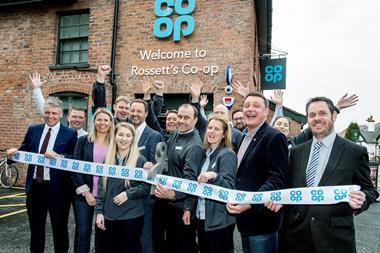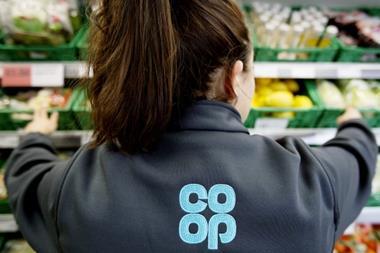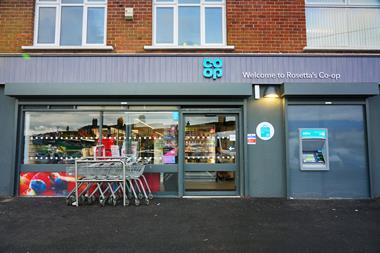The Co-op Group’s convenience business proved the main driver of the mutual’s market-outperformance in food sales last year, as the group entered the second year of its “rebuild” programme, the group’s full-year results disclose.
Like-for-like food sales at stores open for more than one year climbed 3.5% in the year to the end of December. Total food sales climbed 1% to £7.1bn as the business continued to deliver against what it said was its strategy to make better food available to people in the places they wanted to shop.
Underlying operating profit in the food division was slightly down from £186m to £182m after making “an exceptional investment for our future competitiveness and prosperity”, it said. The society invested in refitting stores, increasing staff pay, improving infrastructure and strengthening its food ranges, especially local British produce, and said it was the fastest growing food retailer, excluding the discount supermarkets, on a like-for like-basis.
It was implementing its strategy of focusing on convenience stores, opening 12 new outlets and refitting 155 with its latest format. The Co-op rebranded another 607 stores and sold or closed 141 that did not fit with its ambition to deliver “the right size of store to give customers the best convenience shopping experience”.
The Co-op had 2,774 stores by the end of the year, 29 fewer that at the end of 2015. The year also saw it sell 298 outlets to McColl’s Retail Group.
The mutual claimed shopping at the Co-op was more enjoyable now after spending £88m on new stores and £85m on refits. The food it sold was getting “tastier and healthier” and it was continuing to source locally, and awarded contracts to a record number of micro-breweries.
Food provenance was important to its customers so it had committed to selling only British meat by this May which it said would make the Co-op the only major food retailer to stock 100% own-brand-fresh British beef, chicken, pork, lamb, bacon and turkey.
The group’s previous year’s £23m pre-tax profit plunged to a £132m loss, reflecting a £74m increase in finance changes and writedown relating to its 30% shareholding in The Co-op Bank. Group revenues climbed 3% to £9.5bn.
Steve Murrells, chief executive, said the group was exploring how it could enter markets that were not serving people well and challenge existing providers, and to do that, it was thinking again like the original Co-op movement founders, the Rochdale Pioneers.
“They were true pioneers in every sense of the word – disruptors in markets and agitators for change,” Murrells said.






















No comments yet